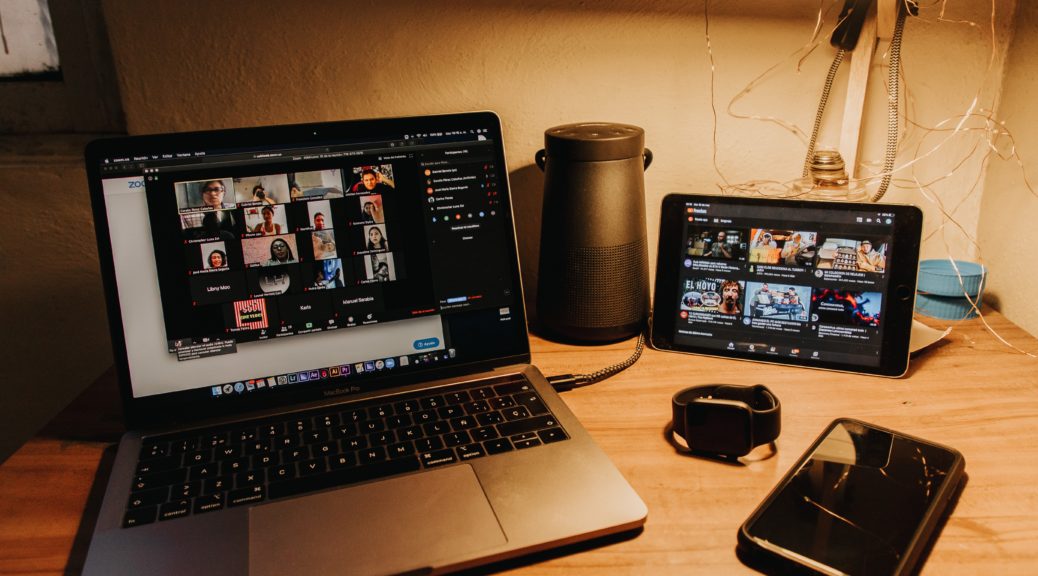By Natalie Grace Sipula
[3 minute read]
When I first learned that the fall semester at USC would be largely conducted online, I was disappointed and confused. I couldn’t stop thinking about my future plans and goals, and how this would be a major obstacle in my life and happiness. But as time passed, I began to realize that my personal concerns, although valid, did not consider the fact that everyone is experiencing problems similar to mine, all around the world. Adapting to a new way of taking class and working in the fall will surely be a struggle for many, and I have compiled a couple of tips to help keep perspective and stay focused during this unusual semester.
1. Wake up at a consistent time in the morning

Managing your own schedule at home can be challenging, especially for those (like me) who aren’t morning people. However, disciplining yourself by making a daily routine can make you a lot more productive throughout the day. If your earliest online class is at 10:00, for example, set your alarm for 9:00, and wake up at that time every day (even the days where you don’t have class until later). If you maintain a consistent morning routine, you can use that time in the morning to prepare yourself for your day or just work on assignments when you don’t have morning classes. Even though it can be hard to force yourself to keep a consistent sleep schedule, without on campus life and social activities, it should be easier to go to bed at a set time every night.
2. Take breaks from looking at a screen

With classes and activities being primarily virtual this semester, it can get exhausting staring at a screen for so many hours in the day, and the blue light exposure can interfere with your sleep. Block out time in your day where you are doing things that don’t involve looking at a screen, and when you do those things, leave your phone or laptop in another room. Some examples are taking a walk, spending time talking to family or friends you are quarantining with, cooking, or reading. If you have a lot of homework, try to find alternative ways to work, such as taking your work outside or printing out articles or materials you have to read instead of reading them on your computer.
3. Make time to talk with friends

If you are quarantining in the fall semester and have little to no time to socialize in person with your friends, you may start to feel lonely and isolated. This can lead you to spend more time on social media or texting friends, which can make you stressed because it takes away from class and work time. The best way to curb those feelings of loneliness is to schedule a regular time to talk to your friends. You could schedule a weekly Zoom call with a group of friends, or plan to call a friend one-on-one at a certain time every week.
It is understandable to feel stressed during this time, but keeping a positive outlook and working towards personal goals can greatly mitigate that stress. Adapting to change is never easy, but if you stay on track in your life and in your work you will feel a sense of accomplishment and, by the time quarantine is over, may have succeeded in finishing some important projects or fulfilling certain goals.
If you are in search of a guide to maintain your wellness and personal well-being, Mindful USC offers classes and guided meditations which are now occurring through Zoom: http://mindfuluscstg.wpengine.com
If you are in need of professional help, USC counseling services are available to all students: https://studenthealth.usc.edu/counseling/
Featured Image by Gabriel Benois on Unsplash
Natalie Grace Sipula is a rising sophomore studying Philosophy, Politics, and Law with a Spanish minor and plans to pursue a career in criminal or immigration law. She is from Cleveland, OH and is a Presidential Scholar studying in Thematic Option. Natalie is an active member of Phi Alpha Delta (Director of Membership), QuestBridge Scholars (University Relations Chair), and Grupo Folklórico de USC. Growing up she was dedicated to theatre, including studying and performing at Cleveland Play House. She is a volunteer camp counselor with Mi Pueblo Culture Camp in Cleveland. Since arriving in Los Angeles she has enjoyed volunteering with Angel City Pit Bulls animal shelter and in her free time enjoys reading, writing, and going to the beach.



